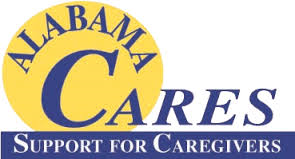 While most of us would certainly prefer to age in place (remain in our own homes throughout our lives), maintaining complete independence in our later years isn’t always an option. More and more Americans are moving older family members into their homes and taking up the mantle of caring for them. In fact, according to “Caregiving in the US,” a study conducted by the National Alliance for Caregiving and AARP, more than 34 million Americans provided unpaid care to an adult age 50 or older in the prior 12 months. That means about one in 10 Americans serves as a caregiver! And for those in Jefferson County, who find themselves in that role, Alabama Cares is here to help.
While most of us would certainly prefer to age in place (remain in our own homes throughout our lives), maintaining complete independence in our later years isn’t always an option. More and more Americans are moving older family members into their homes and taking up the mantle of caring for them. In fact, according to “Caregiving in the US,” a study conducted by the National Alliance for Caregiving and AARP, more than 34 million Americans provided unpaid care to an adult age 50 or older in the prior 12 months. That means about one in 10 Americans serves as a caregiver! And for those in Jefferson County, who find themselves in that role, Alabama Cares is here to help.
Although rewarding, caregiving is far from an easy job. Truth be told, it can test even the healthiest individuals’ mental and physical stamina, putting them at risk for everything from exhaustion to depression and anxiety disorders – especially in cases involving stroke survivors and those with dementia. But Alabama Cares, a United Way Area Agency on Aging (UWAAA) program, offers assistance and support to caregivers with issues that arise from the unique responsibilities, demands and stress of their position. This is accomplished through the following five types of services.
- Information Services – Alabama Cares provides caregivers with information on relevant resources within the community through literature and events such as health fairs and educational opportunities.
- Caregiver Access Assistance – Trained Alabama Cares Coordinators help caregivers assess and better understand the specific needs of their patients, as well as connecting them with available support services.
- Caregiver Education or Counseling – Alabama Cares can often help caregivers effectively deal with their difficulties through individual counseling, support groups or caregiver training, which may cover topics such as health, nutrition and financial literacy. Because caregivers frequently feel isolated and shut off from the outside world, support groups can prove to be particularly helpful. To learn more about them, click here or call 1-800-AGE-LINE (1-800-243-5463).
- Caregiver Respite – Caregivers can have trouble carving out time for themselves, so Alabama Cares provides respite care by offering temporary substitutes for primary and family-member caregivers. These screened and qualified substitutes come to the caregiver’s home for a brief period of time and provide services such as personal care, light housework and adult daycare.
- Caregivers Supplemental Services – In some cases, Alabama Cares may even offer services such as assistive technologies, emergency response systems, incontinence supplies and nutritional supplements.
 To qualify for the services of Alabama Cares, an individual must be an unpaid primary caregiver for a frail adult age 60 or older, who needs help with at least three activities of daily living such as bathing, dressing, walking, toileting, taking medications, cooking and household chores. An individual may qualify as an unpaid primary family caregiver for someone with Alzheimer’s disease or a dementia-related diagnosis, regardless of the care recipient’s age.
To qualify for the services of Alabama Cares, an individual must be an unpaid primary caregiver for a frail adult age 60 or older, who needs help with at least three activities of daily living such as bathing, dressing, walking, toileting, taking medications, cooking and household chores. An individual may qualify as an unpaid primary family caregiver for someone with Alzheimer’s disease or a dementia-related diagnosis, regardless of the care recipient’s age.
Priority is given to those caring for people with the greatest social and economic need, as well as to family caregivers providing care and support to persons with Alzheimer’s disease or other forms of dementia. There is no income limit, but voluntary contributions to help cover the cost of services are welcomed. For more information, visit the Alabama Cares page on the UWAAA website, or call 1-800-AGE-LINE (1-800-243-5463).
Please note that another important aspect of the Alabama Cares program includes services to help and support older relatives who serve as caregivers themselves to children or individuals with disabilities and may be facing their own unique challenges. To learn more about the Older Relatives Caregiver Program of Alabama Cares, call 1-800-AGE-LINE (1-800-243-5463).